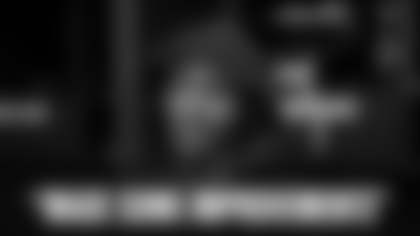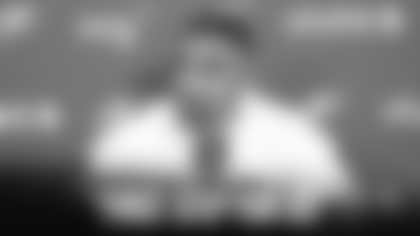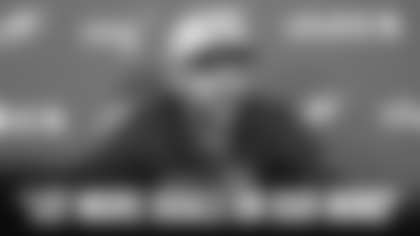In March 2004, one week before Veterans Stadium was imploded, John Spagnola came by for one last look. The former Eagles tight end, now an investment broker in Philadelphia, stood on Pattison Avenue staring at the stadium which was already packed with explosives.
Asked for his fondest memory of the place, Spagnola smiled.
"That's easy," he said. "The Dallas game."
He didn't have to say any more than that. He didn't have to say which game. No date was required. The Dallas game could only mean one thing: the NFC Championship Game on January 11, 1981. Anyone who was there remembers it, the game that sent the Eagles to their first Super Bowl.
"The emotion in the stadium that day was something I'll never forget," Spagnola said. "I'm getting emotional now just thinking about it."
The Eagles defeated the Cowboys, 20-7, on a frigid day in South Philadelphia. The temperature was in single digits, the wind was gusting at 30 miles an hour but as Ron Jaworski recalled: "When we came down that tunnel and heard the fans, it was 70 degrees and sunny."
The victory was the high point of the Dick Vermeil era. For five years, the Eagles' head coach had built his program with one goal in mind: Defeating the Dallas Cowboys. They had ruled the NFC East and they owned the Eagles, winning 21 of 23 games in one stretch, many of them by lopsided margins.
"To get where we wanted to go, we had to beat the Cowboys," Vermeil says.
He harped on it every day, going so far as stopping practices to inform the players, "The Dallas Cowboys are practicing better than you are right now." He kept pouring fuel on the fire so it was only fitting that when the Eagles finally made it to the NFC Championship Game it was the Cowboys standing in their way. It was like fate.
The two teams finished the regular season with identical 12-4 records, but the Eagles won the division on tiebreakers. When they met in the title game, however, the Cowboys were favored, even though the game was in Philadelphia. Feeling disrespected, the Eagles just clenched their fists that much tighter.
General manager Jim Murray came up with a masterful bit of gamesmanship that week. It was well known that Dallas regarded its blue jerseys as unlucky. The players were more comfortable in their familiar white jerseys. For a title game, the home team has the prerogative to pick their jersey color. All season the Eagles wore green at home but for this game Murray notified the league office that the Eagles would wear white.
Of course, that meant the Cowboys had to wear blue. When team president Tex Schramm got the news, he flew into a rage. Score one for the Eagles' front office.
"They were very open about which colors they preferred," Vermeil says. "We thought, 'Why let them wear it?' It was just one more thing for them to think about."
It was bitterly cold in Philadelphia that week so Vermeil took the team to Tampa, Florida to practice. Their star running back Wilbert Montgomery was limping with a sore knee and bruised thigh. There were questions about how much he would be able to contribute. He spent long hours with trainer Otho Davis hoping to get ready. His knee gave out on Thursday and he was still hobbling when the team flew back to Philadelphia the following day.
Asked about Montgomery's availability, Vermeil said only: "We'll see."
The doubts about Montgomery's health were answered almost immediately. On their second play from scrimmage, Jaworski handed off to Montgomery who started left then cut back through a wide open lane into the open field. He sprinted 42 yards for a touchdown that brought the 70,696 fans roaring to their feet.
"It looked like someone shot Wilbert out of a cannon," linebacker Bill Bergey says. "He exploded through there. I knew right then we couldn't lose."
"It wasn't just that we scored early, but we scored early on a running play," Jaworski says. "Nobody thought we could run like that on the Cowboys. It sent a message that we could take the ball and shove it down their throats. Weather conditions being what they were, the more physical team was going to win and we established right away that we had the edge."
"We could run that play a hundred times and never hit it as perfectly as we did there," Vermeil says. "We went with our shotgun personnel but we shifted into an I-formation with three wide receivers. We'd never done that before and it took Dallas by surprise. They had their nickel (defense) on the field with six defensive backs.
"They were in man coverage so they were running with our receivers with their backs to the ball. We knew if we got Wilbert through the line, he could run right up their backs and they wouldn't even know it."
Montgomery ran for 194 yards, two short of the NFL postseason record set by another Eagle, Hall of Famer Steve Van Buren, in the 1949 championship game against the Los Angeles Rams.
"The knee felt pretty good," Montgomery says. "Not 100 percent but good enough. I knew once I got the adrenaline flowing it could overcome a lot of things."
The Eagles limited Dallas to 11 first downs and held future Hall of Famer Tony Dorsett to 41 yards rushing. The Cowboys turned the ball over four times and were outhit from beginning to end. No one blamed the loss on the blue jerseys. The Cowboys were simply outplayed, beginning to end.
"The final score was not indicative of how dominant we were," Bergey says. "In terms of physical play, the hitting part of the game, it was more like 42-0."
"It's time someone gave us the credit we deserve," tight end Keith Krepfle says. "We kicked the hell out of them."
As the final seconds ticked down, hundreds of fans stormed the field to celebrate with the players. That night, owner Leonard Tose threw a lavish victory party at Bookbinder's with Patti LaBelle singing and the players and their families reveling in the moment. It was a day - and a night - to remember.
An award-winning writer and producer, Ray Didinger was inducted into the Pro Football Hall of Fame in 1995. He has also won six Emmy Awards for his work as a writer and producer at NFL Films. The five-time Pennsylvania Sportswriter of the Year is a writer and analyst for NBC Sports Philadelphia. Didinger will provide Eagles fans a unique historical perspective on the team throughout the year for PhiladelphiaEagles.com. You can read all of his Eagles History columns here.























